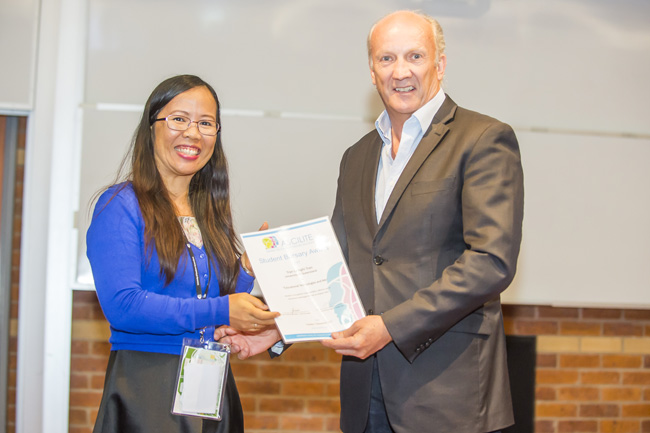By Associate Professor Dominique Parrish (University of Wollongong) and ASCILITE President
2017 was a very busy but highly successfully year for ASCILITE; a year that saw the inauguration of Donald Trump through to the legislation of same-sex marriage. We started 2017 with the introduction of a new communication channel the TELall Blog, welcoming 22 blog posts through the year contributed by 19 authors from 14 higher education institutions across Australia and abroad. In January 2017 a call was put out for Community Mentoring Program (CMP) mentees and mentors which resulted in 19 mentees and 16 mentors from 30 universities and other organisations being confirmed. 5 of these teams went on to deliver presentations at the ASCILITE Conference in Toowoomba in December 2017.
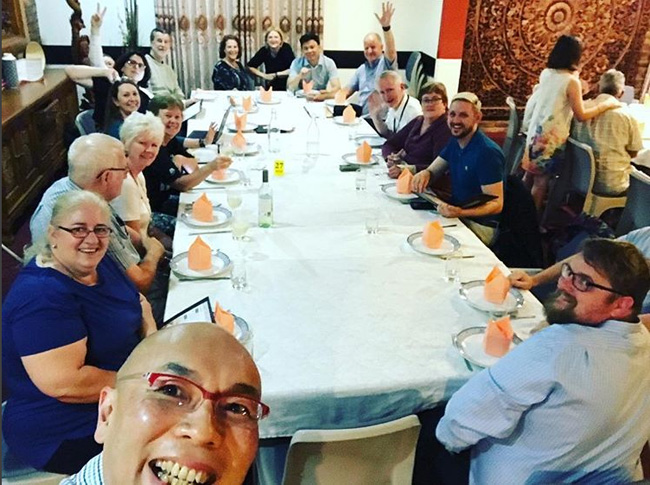
The ASCILTE Executive held their annual face-to-face planning meeting in Brisbane on 16 & 17 March. This meeting saw the instigation of new ASCILITE member initiatives including the Spring Into Excellence Research School and the Technology Enhanced Learning Accreditation Scheme (TELAS).
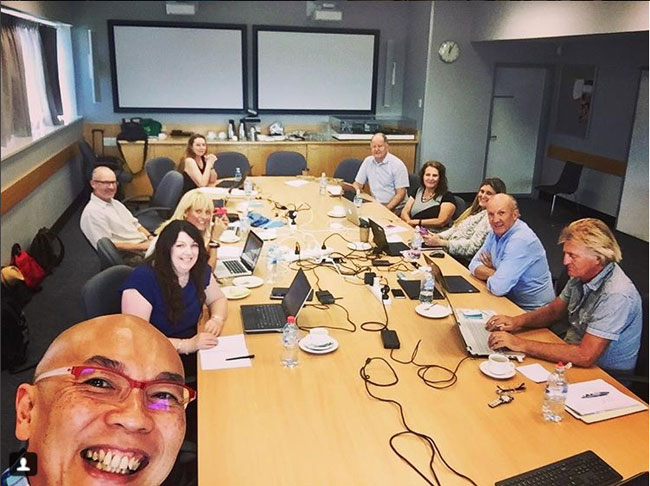
In September, the Spring into Excellence Research School brought together 26 participants from 10 institutions and provided support and guidance to participants in developing and progressing technology enhanced learning research initiatives.
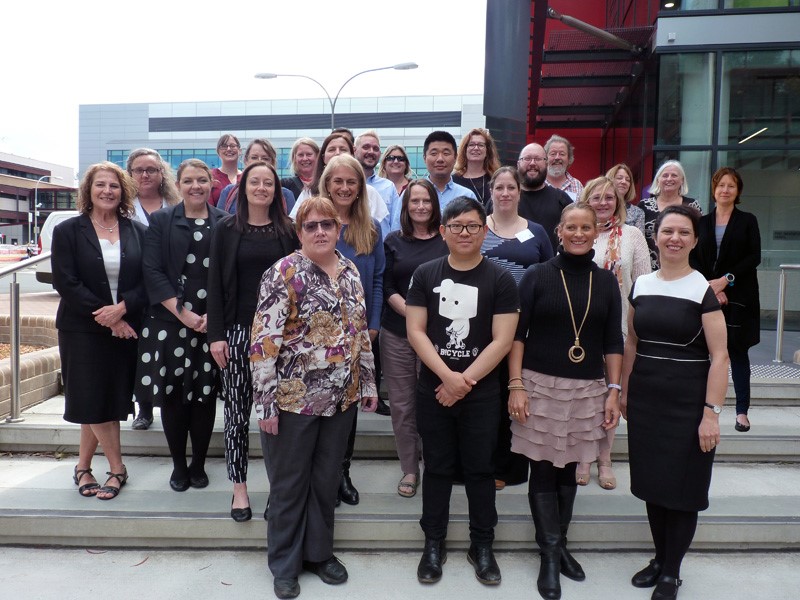
The Technology Enhanced Learning Accreditation Standards is currently being established to develop an Australasian online learning accreditation scheme that will guide the development, assessment and evaluation of quality online learning and enable national and international benchmarking of online learning. From April to June 2017 an extensive literature review was undertaken to identify evidence about what constitutes quality online learning; this review informed the first iteration of a TELAS framework. Workshops were subsequently facilitated from June to November to refine and develop the framework. 58 academics, 6 students and 12 technical and further education staff participated in nine workshops that were held in Australia, New Zealand and Singapore.

In December 2017 presentations about the TELAS were delivered at the TEQSA Conference in Melbourne and the ASCILITE Conference in Toowoomba.
Throughout 2017, ASCILITE hosted 5 webinars attended by 102 participants and introduced its first Fika session in which a topic of interest is informally discussed among online participants. An outcome of the first Fika session was a decision to initiate a new ASCILITE Special Interest Group (SIG) on Open Educational Practices.
In 2017, ASCILITE supported 5 SIGS – a TEL-edvisors SIG, Transforming Assessment SIG, Learning Analytics SIG, Learning Design SIG and a Mobile Learning SIG. In addition, those interested in Digital Equity met at the ASCILITE 2017 conference to discuss the formation of a 6th SIG. The aim of ASCILITE SIGs is to give ASCILITE members the opportunity to lead and generate community activities in the field of their SIG. This includes activities such as webinars, webchats, conference meetings, discussion forums, professional development events and virtual seminars.
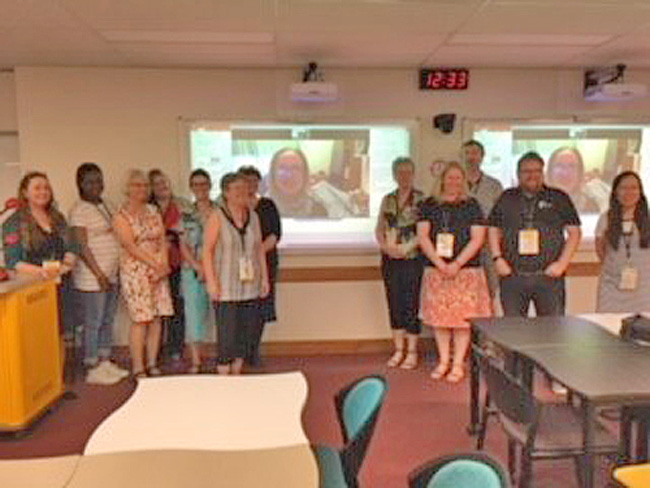
2017 saw our journal – the Australasian Journal of Educational Technology (AJET) continue to perform well AJET’s dedicated team of Lead Editors saw a change with Chwee Beng Lee stepping back to the role of Associate Editor in the middle of the year and Petrea Redmond joining the Lead Editor Team. In 2017 there were 6 AJET issues published including 2 special issues on Mobile Augmented and Virtual Reality and TPCK/TPACK Research and Development: Past Present and Future Directions. AJET had 405 submissions in 2017.
2017 concluded with another successful ASCILITE conference hosted by the University of Southern Queensland (USQ) and an organising committee led by Professor Helen Partridge, which included Dr Kate Davis, Carmel O’Sullivan, Adrian Stagg, Hazel Jones, Professor Shelley Kinash, Associate Professor Petrea Redmond, Kathy Carey, Dr Megan Kek, Associate Professor Warren Midgley, Dr Eliza Whiteside, Leonie Sherwin, Madelaine Judd, and ASCILITE Executive member Associate Professor Helen Farley. A total of 178 submissions were received for the 2017 conference. 87 blind peer reviewed submissions, 23 non-blind peer reviewed submissions and 13 non-reviewed submissions were accepted. At the conference paper and poster award winners were announced for:
- Best concise paper awarded to Yvonne Davila, Elaine Huber, Jorge Reyna and Peter Meier from the University of Technology Sydney;
- Best Full Paper awarded to Shelley Kinash from USQ and Linda Crane, Gary Hamlin, and Amy Bannatyne from Bond University; and
- Delegate Choice Best Poster awarded to Colin Warren and Peter Bright from Deakin University.

ASCILITE Innovation Awards were also presented at ASCILITE 2017 to:
- Colin Warren of Deakin University with Peter Bright, Sarah Burgess, Karen D’souza for “cARdiac ECG Augmented Reality App”.
- Prasad Iyer of Singapore Institute of Technology with Cheow Wean Sin and Lim Kok Hwa for “Chem Quest – An Adaptive Pre-Freshman Online Chemistry Course”.
- Erica Southgate of University of Newcastle with Shamus P. Smith for “The literacy apps project: Serious games and information apps to improve adult literacy”.
In addition to the Innovation Award, Prof. Barney Dalgarno (Charles Sturt University) received the prestigious Life Member Award for his outstanding contribution to the Society.

In 2017 ASCILITE commenced a new award initiative with the introduction of Student Bursaries open to full-time PhD/EdD or equivalent students Awardees receive a $1,000 bursary in the form of a complimentary ASCILITE conference registration (student rate) and reimbursement of a one year ASCILITE membership. The remaining funds may be used for up to 3 nights accommodation at the conference or to assist with conference travel. Conference registration and accommodation arrangements are made by ASCILITE on behalf of the award winners. If a nominee is already a member of ASCILITE, their membership is extended by 12 months.
